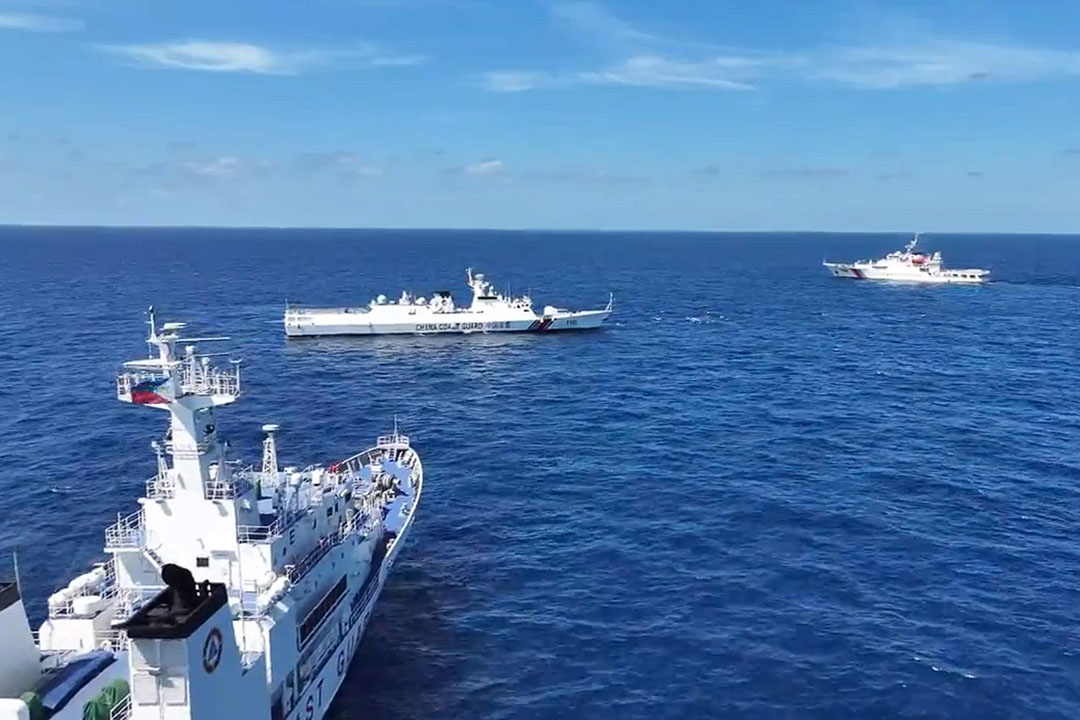PHL’s transparency initiative straining China’s economic ambitions — expert

By Kyle Aristophere T. Atienza, Reporter
THE PHILIPPINES’ transparency campaign on the score of developments in the South China Sea is damaging China’s global reputation and could thwart its economic ambitions, a foreign security expert said on Tuesday.
Manila needs to strengthen the campaign and integrate it into a broader strategy in the face of an increasingly belligerent China, which is expected to further its coercion tactics that fall short of a shooting war, said Benjamin Goirigolzarri, member of the Project Myoushu at the Gordian Knot Center for National Security Innovation.
Exposing China’s aggressive maritime activities within Manila’s exclusive economic zone (EEZ) threatens Beijing’s economic ties with Indo-Pacific nations, Mr. Goirigolzarri told a forum organized by local think tank Stratbase ADR.
“The more malign activity that the assertive transparency reveals, the more likely that Indo-Pacific nations, and those along the Belt and Road Initiative (BRI), will shy away or at least be skeptical of investment opportunities coming out of Beijing,” he said.
Last year, China said Southeast Asia would remain an investment priority for the BRI, a Chinese infrastructure program that targets over a 100 countries. In late 2023, the Philippines scrapped a deal with China to fund and build three rail projects in Luzon and Mindanao islands, which were all under the ambitious initiative.
Tensions between the two countries continue to escalate, with Chinese Coast Guard vessels firing water cannons and resorting to dangerous maneuvers to block Philippine vessels on resupply missions to its troops stationed at a World War II shipwreck intentionally grounded on Ayungin Shoal (Second Thomas Shoal) in the South China Sea.
The administration of President Ferdinand R. Marcos, Jr. has been publicizing such aggressive moves by China, inviting journalists to join Philippine maritime activities within its 200-nautical mile EEZ to report what they witness.
Mr. Goirigolzarri noted that the Philippines has been gaining moral support from big Asian and European countries since it exposed China’s use of military-grade lasers in February, 2023 to scuttle a resupply mission to the shoal where the grounded BRP Sierra Madre has served as a Filipino outpost since 1999.
He noted that the Group of Seven (G7) countries — the grouping of the world’s seven largest economies — has already issued a “sharp” review of China’s maritime aggression and has backed the 2016 arbitral ruling that invalidated Beijing’s expansive claims in the waterway, a case won by the Philippines.
China also risks losing its strong influence among countries in the Global South, Mr. Goirigolzarri added.
The Chinese government has been forced to “surrender every moral high ground it has so long claimed,” he noted.
The transparency campaign has also enabled the Philippines to secure security partnerships with and get material assistance from traditional and non-traditional allies, he said.
“We have seen increases in the commitments of the US, Japan, Australia to conduct joint patrols with the Philippines Navy,” he said.
Last week, the Philippines and the US held their third joint sea and air patrols in three months, with the second one being in January and the first one in November last year.
Mr. Goirigolzarri said the Philippines and Japan have “reenergized” their ties, with the two countries agreeing in December to quickly conclude their talks on a possible reciprocal access agreement, which would allow the deployment of troops on each other’s soil.
The Philippines and France, which are also discussing a possible RAA, have agreed to boost their information and intelligence sharing, he added.
Meanwhile, Canada forged a satellite agreement with the Philippines last year to help the smaller country detect vessels illegally operating with its EEZ.
“Our efforts to publicize compelling videos and images that truthfully document Chinese illegal actions in the West Philippine Sea, have garnered international attention and condemnation,” said Jay Tristan T. Tarriela, Philippine Coast Guard (PCG) spokesman for the West Philippine Sea.
He noted that the limited information about the situation in the South China Sea during the time of Mr. Marcos’ predecessor, Rodrigo R. Duterte, allowed misinformation to proliferate in social media platforms.
“This led many to wrongly perceive China as a good friend and a partner for peace and development,” Mr. Tarriela said.
Mr. Duterte pursued a pivot to China after taking office in 2016 in exchange of investment pledges, few of which had materialized.
“There are lawmakers who were previously silent in criticizing China’s actions but have now taken a stand and publicly condemn China,” the PCG spokesman said.
He assured that the transparency campaign would remain even with an agreement between Manila and Beijing last month to deescalate tensions in the waterway.
“Let me again emphasize that our transparency initiative remains to be the same, how aggressive we are, how we started until now it remains to be the same,” he said.
He noted that the Philippines did not hesitate to publish China’s attempts to block the Philippines’ patrol of Scarborough Shoal earlier this month.
In response to the Philippines’ transparency campaign, China has increased its disinformation campaigns, said Startbase Group Communications and Advocacy Director Joyce Ilas-Reyes, who made a study on China’s information warfare.
She said pro-China narratives are being propagated on hyper-partisan social media pages and influencers, who wrongfully utilize data and redirect attention to other issues.
Still, there has been an increasing number of Filipinos who support government efforts to defend the country’s sovereignty, which shows that the Philippines is over the information warfare initiated by China.
Ms. Ilas called for a whole-of-society approach to combat alleged China-led disinformation, citing the importance of including the 2016 arbitral ruling in basic education curriculum and enforcing stricter policies against trolls in social media.
Mr. Goirigolzarri, meanwhile, called for the integration of the transparency initiative into a “broader” transnational strategy for countering gray zone operations.
“Identifying what conditions, tactics, documentation, distribution will allow the narrative born out of assertive transparency to rise above those that are trumpeted by grayzone aggressors will be critical for its long-term success,” he said, “otherwise, it runs the risk of being lost in the midst of false narratives.”



